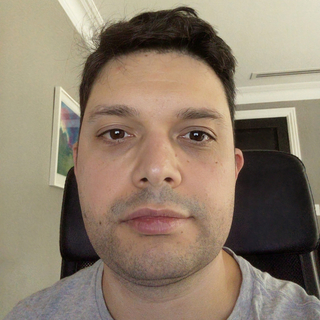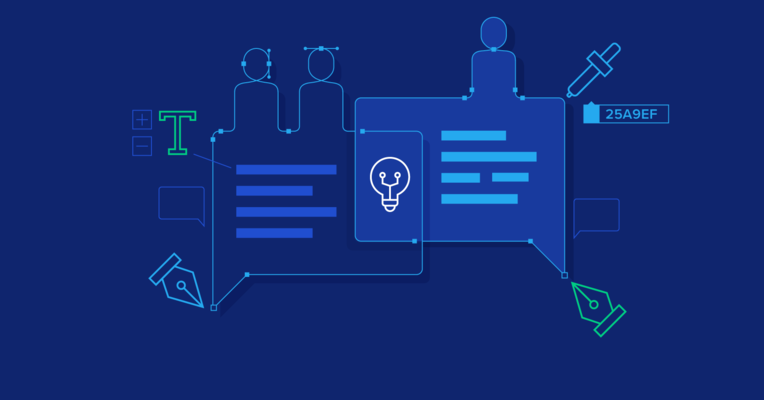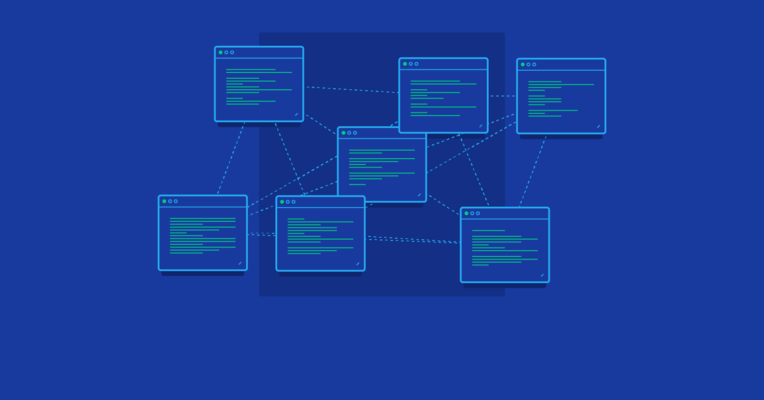Demand for Technical Writers Continues to Expand
Technical writer demand continues to grow for organizations of all sizes. Given how critical well-written documentation is to a product’s initial and ongoing success, it’s no wonder. Underdocumented software can drive users away or increase the workloads of support teams, who may, in turn, escalate these burdens to developers when clear resources aren’t available. Even developers maintaining their own code lose efficiency when documentation is sparse or outdated. Skilled technical writers help ameliorate all of these pitfalls of technical debt, but the process for hiring them can be more nuanced than many expect.
As software grows more complex—often with dozens or hundreds of direct dependencies (the tip of the iceberg, since that excludes transitive dependencies)—it becomes essential for businesses to bring on specialists who can make complex technical information accessible. The US Bureau of Labor Statistics predicted that technical writer employment would grow by a steady 4% from 2023 to 2033, a figure that may understate the urgency created by AI-assisted development and the rise of “vibe coding,” where rapid iteration often outpaces documentation clarity.
This guide will help you recognize the traits of an exceptional technical content writer, write strong job descriptions, and ask interview questions that lead to the right hire.
What Attributes Distinguish Quality Technical Writers from Others?
Hiring a strong technical writer means finding someone who can communicate complex ideas clearly to the right audience. Because the expectations, tone, and structure vary significantly depending on the audience and content type, technical writing is as much about adaptability and precision as it is about subject matter expertise.
Audience Awareness and Adaptability: One of the most important things to understand about technical writers is how widely the profiles of their target audiences can vary. Writing accurate, highly technical documentation for engineers requires a different skill set than distilling abstruse concepts for general, non-technical readers. Even within these broad categories, audience profiles can be even more granular. For example, case studies for business decision-makers require a different tone and structure than a user manual or FAQ written for traditional end users, which themselves vary depending on the product and market. API documentation presents another distinct challenge, given the end users are often software developers looking for precise, code-level clarity.
Clarity, Structure, and Visual Thinking: High-quality technical writers communicate technical concepts with empathy and precision, shaped by the needs and expectations of your target audience. They adapt readily to style guides and prioritize readability in both content and structure. This focus includes knowing when a visual aid—such as a diagram or schematic—can enhance understanding, even if they’re only expected to provide a rough napkin sketch or concept for a designer to refine.
Collaboration and Subject-matter Fluency: Strong communication skills are equally important for team collaboration. Technical writers must work closely with subject matter experts (SMEs) like software developers and product managers to produce insightful content. The more a candidate’s background overlaps with SMEs and target audiences, the better. For example, the best author for a computer science whitepaper will be someone with CS courses on their transcript (if not a bachelor’s degree or higher). Likewise, someone documenting an API will be more successful if they have real-world experience in software engineering. In both cases, first-hand familiarity with the target audience will ease the writing process—and it equips them to ask the right questions of their team members to pinpoint the necessary information.
How Can You Identify the Ideal Technical Writers for You?
Before you write a job description or interview candidates, it’s essential to define what kind of writing projects your organization needs and which skills are most critical for success. This section outlines the most important factors to consider as you evaluate candidates and build an effective hiring process.
Clarify Project Scope and Target Audience
Document the specific projects the technical writer you are hiring will handle, as this will shape how you evaluate candidates. For example, the conventions used in instruction manuals and whitepapers are vastly different—do you need a generalist with experience in both, or would someone with a more focused portfolio be a better fit? Also, consider the audience for each project and decide whether you will need a writer with a development background or someone more attuned to the average user experience.
Determine the Right Experience Level
A talented junior writer can structure information and follow templates efficiently but may need help with complex technical content. A senior technical writer with several years of experience will require less oversight and may offer project management skills, like developing documentation strategies aligned with business goals. If you’re hiring freelance technical writers to fill a gap, you’ll likely want a senior writer who can get up to speed quickly with minimal onboarding time.
Evaluate Portfolios, Writing Samples, and Skill Assessments
Your evaluation of candidates should include a review of resumes, portfolios, and past projects. Resume writing—and showcasing work on LinkedIn or a personal website—is directly relevant to technical writing, showing how detail-oriented and consistent a candidate can be. Samples of user manuals, white papers, FAQs, and case studies can show a candidate’s versatility and help determine whether their experience aligns with your needs, but don’t fault a candidate if their prior work happens to be protected by an NDA.
A writing skill assessment is another valuable tool for vetting a technical writer’s abilities. Ask candidates to create or edit a sample technical document to measure their attention to detail and structure. The best technical writers will go a step beyond by identifying gaps and clarifying ambiguities to improve the overall user experience. Having worked with (or as) a product manager or software developer often means a candidate is well-prepared to handle these challenges.
Lastly, companies that require specialized documentation should consider the industry-specific tools they use. If your organization relies on an XML-based tool like MadCap Flare, DITA, and DocBook, knowing how to hand-craft HTML will considerably shorten the learning curve in lieu of direct experience. If the role involves documenting a REST API, candidates familiar with OpenAPI (for example) might be beneficial, depending on your pipeline.
How to Write a Technical Writer Job Description for Your Project
Technical writing job board postings attract qualified candidates and help filter out mismatches, providing the job description is detailed and accurate. Start with a job title that’s as specific as possible, such as “Technical Writer—API Documentation” or “Senior Technical Writer—Software Industry.” Clearly indicate whether the role is full-time, freelance, or in-house as a title tag or in the first paragraph allows candidates to self-filter easily.
In the body of the job posting, outline key responsibilities and major projects, and describe the typical target audiences. Clarify expectations around technical and educational background, as well as proficiency with the specific documentation tools your organization uses. If the role includes reading source code or writing tutorials, specify the relevant programming languages and whether they’re expected to handle graphic design responsibilities or can rely on team members to finalize illustrations.
What Are the Most Important Technical Writer Interview Questions?
The interview for a technical writer candidate complements portfolio reviews and skill assessments: It allows you to assess verbal communication and other soft skills while verifying their knowledge and experience. Below are some of the most insightful conversation starters for evaluating a candidate’s ability to translate complex technical information into accurate, user-friendly content.
How do you ensure technical accuracy when writing documentation?
Technical writers collaborate with subject matter experts, software engineers, and product managers to verify the accuracy of their content. Candidates should describe conducting regular reviews with software engineers and cross-referencing data and concepts using existing technical docs (like API specifications and system architecture diagrams). The strongest technical writers will be able to verify facts directly via source code; where this is a requirement, follow up with questions about sample code to ensure candidates have an appropriate level of understanding.
How would you approach writing user-friendly documentation for a complex API?
Strong candidates will demonstrate an understanding of technical communication best practices, like structures that provide code examples, FAQs, and real-world use cases. They should know how to segment an audience based on experience level so that senior developers can quickly get to the technical specifics they need while junior developers receive enough context and extra resources to use the API despite their knowledge gaps. Top candidates will suggest including illustrations like timeline diagrams, flow charts, and tables—but only where they add value.
What is your process for managing documentation projects with tight deadlines?
Technical writing projects often require balancing multiple deliverables, so it’s helpful if candidates are familiar with project management methodologies (like Agile), tools (like Jira or Trello), and prioritization techniques, especially those in use at your organization. They should be comfortable coordinating with product managers to align delivery with software release timelines, leaving time for appropriate peer review and stakeholder approval. Candidates who focus on doing everything themselves without workflow organization or stakeholder communication may struggle with project scalability.
How do you adapt your writing style for different audiences and content types?
In-depth user manuals don’t have the same readership or conventions as content marketing materials like blog posts and case studies. Candidates should be able to give examples of how to adjust tone and structure for different audience personas and media. If their role will involve content marketing, dig deeper into their experience incorporating SEO while copywriting technical content, which needs to be somewhat recent to be relevant to current search engines.
Why Do Companies Hire Technical Writers?
From startups to enterprises, companies hire technical writers to translate complex technical information and find its most understandable and usable presentation for a given audience. Their high-quality documentation streamlines product adoption, reduces support costs, and improves customer satisfaction.
The right technical writer is a crucial long-term investment. Finding and hiring talent who fit your company’s needs means having confidence in the technical content that underpins everything from the onboarding of today’s internal teams to the user experience of tomorrow’s customers.





























